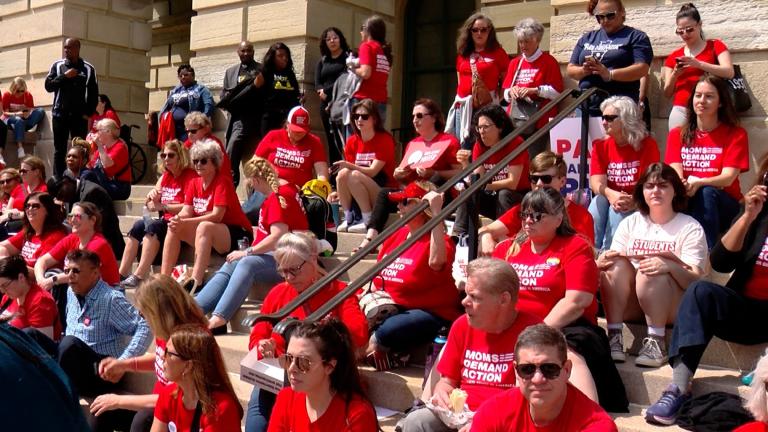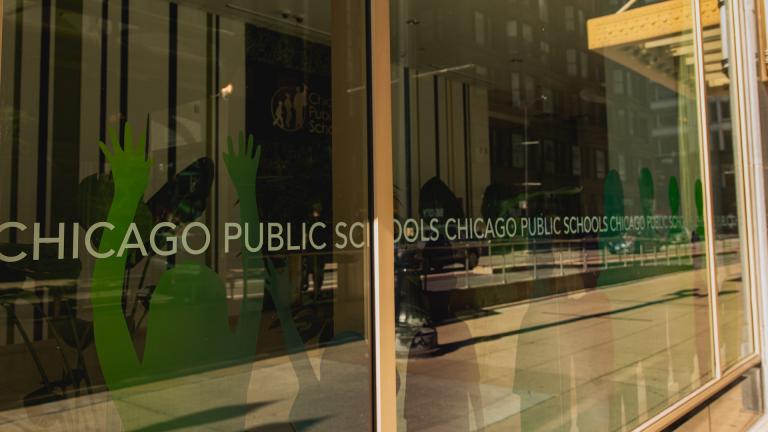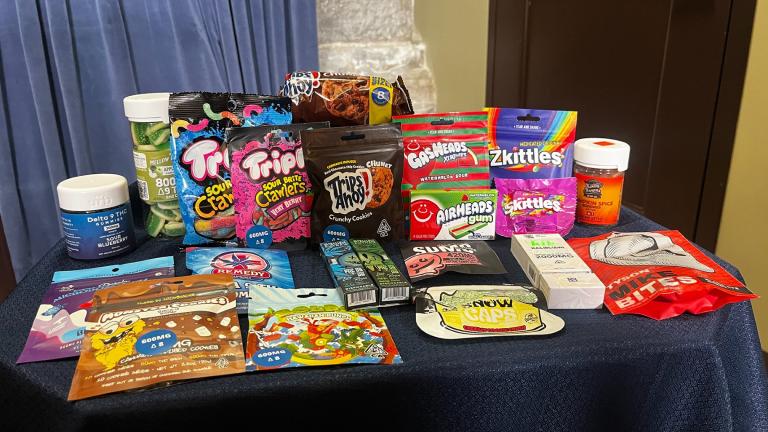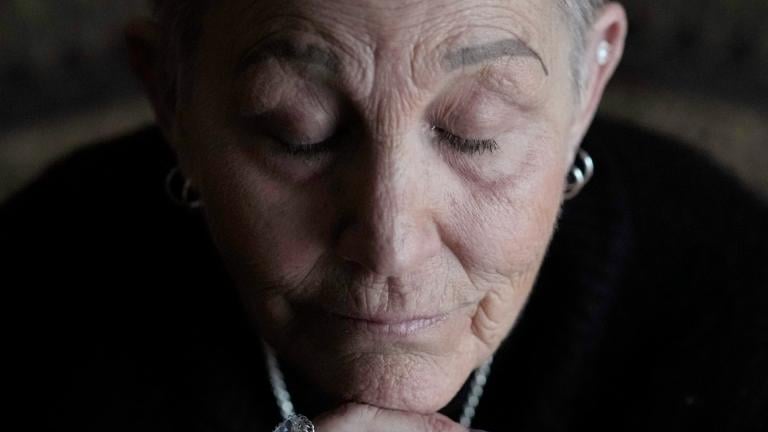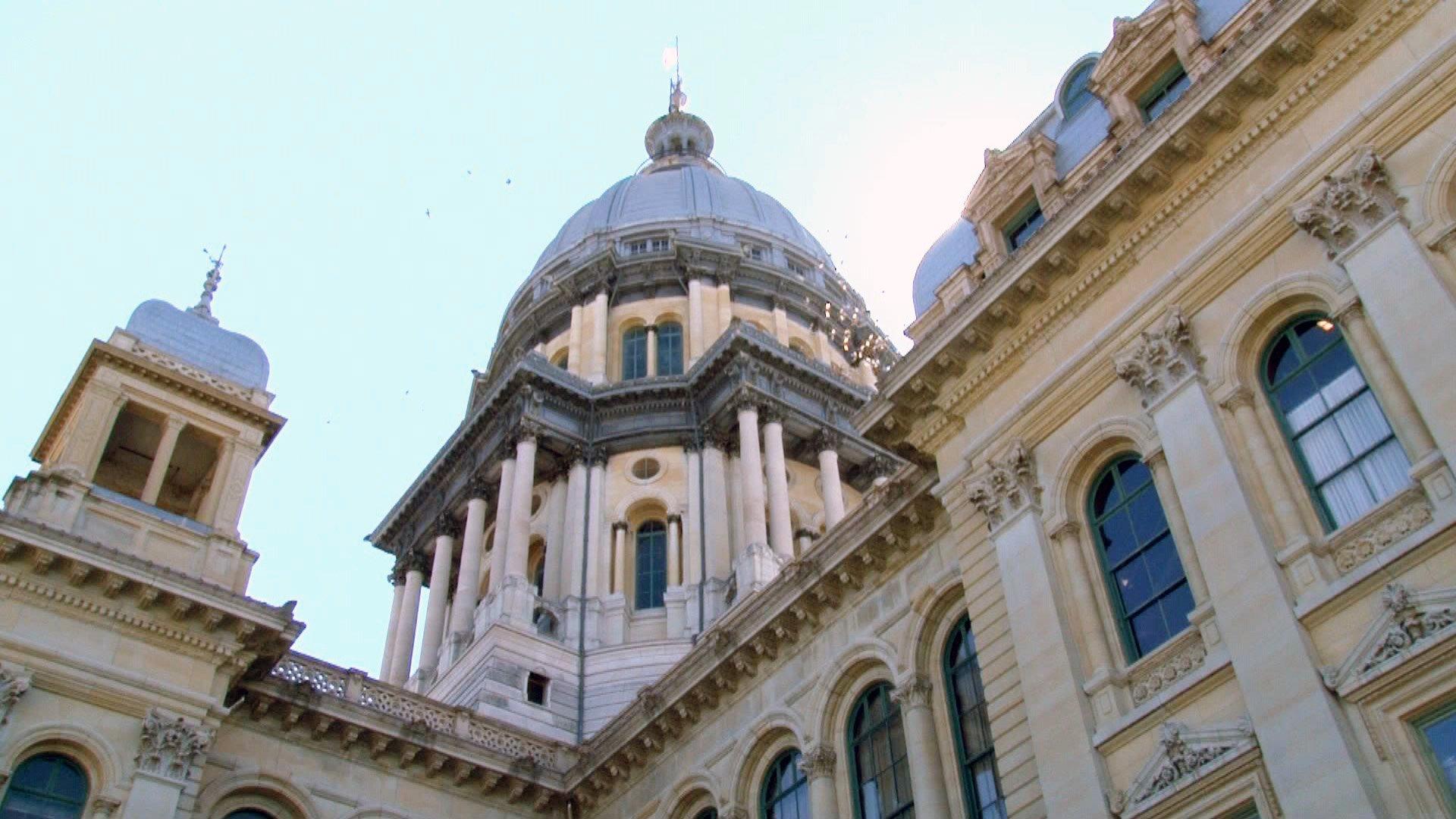 (WTTW News)
(WTTW News)
Members of the Illinois General Assembly were still at work to pass a new state budget from 1 a.m. to 6 a.m. Saturday morning.
The $46.5 billion spending plan offers $1.8 billion in tax relief intended to cushion families from inflationary shocks.
One legislator likened it to funneling $1.8 billion of taxpayers’ money into the governor’s re-election campaign.
“Let’s call this budget what it really is — an attempt to buy your vote,” Senate Republican Leader Dan McConchie said. “While some tax relief is better than none at all, Illinoisans deserve real relief instead of bigger government.”
Despite that criticism, Republicans backed the tax relief package (SB157).
They did not, however, lend support to an accompanying pair of omnibus spending measures (HB4700 and SB900) that compromise the budget for the 2023 fiscal year that begins in July.
The budget will put $12 billion into education and sends $8.8 billion to human services, pour $1 billion into a “rainy day” fund and fully funds the state’s $9.6 billion required annual pension payment and then some, with an extra $200 million making a dent in a pension system that at last check is underfunded by a nation-leading $140 billion.
Gov. J.B. Pritzker is expected to sign the package.
He and other Democrats say they’re being fiscally responsible.
Republicans call that an “audacious” claim, and say Illinois is setting itself up for pain, and a potential tax hike down the road.
Illinois’ finances have been plagued for years, in large part to political priority over prudence.
But this year the state has freedom it hasn’t experienced in federal relief money and an unexpected extra $2 billion flowing into state coffers as consumers spent more on goods during the pandemic.
Most of the tax relief is temporary in nature.
A 2-cent a gallon increase in the state tax on gasoline will be paused, taking effect in January – after the primary and general election contests -- rather than July. Shoppers will get to avoid paying a 1% grocery tax for a year, meaning shoppers won’t be responsible for paying $1 in state taxes for $100 worth of groceries. And homeowners will get a one-time break on their property tax bills, for a maximum of $300.
“This is one of the best budgets that we have seen. But it also builds on the financial stability that we have seen based on the policies that we have instituted in this General Assembly,” State Sen. Elgie Sims, Senate Democrats’ budget leader, said. “It allows us to do: Give property tax rebates for taxpayers, allows us to rebate grocery taxes for taxpayers, and also allows us to invest directly into the families across Illinois by giving them direct payments back of their taxes.”
The direct payments will come this fall either in the form of checks or electronic direct deposits. All taxpayers who make $200,000 or less will get $50 refunds, plus $100 for up to three dependent children.
“We’ve got an election year so I’m really curious whose name’s going to be at the bottom of that check,” State Rep. Jeff Keicher, R-Sycamore, asked sponsor Rep. Mike Zalewski, D-Riverside, during the debate.
Zalewski couldn’t definitely say, but admitted that it will likely be a constitutional officer running for reelection on the November ballot.
“So we have virtually every household in the state of Illinois, earning under $200,000, receiving a check in an election year from someone running for office,” Keicher said. “Is that problematic to anybody?”
Keicher said Illinois has had a “very cloudy past with Gov. Blagojevich putting his name on everything” and a “treasurer who regularly expands his programs, so that he can put his name into everybody’s mailbox with pointless gigantic mailings.”
Republicans say the measures collectively won’t make a huge difference to most families. Economic experts forecast the half-year gas tax freeze will save the average driver $50 – negligible especially, they argued, to rural residents who have to travel lengthy distances to go to work or a doctor’s appointment without the option of public transportation.
They’d pitched a different route: Eliminating the state’s 6.75% sales tax on gasoline. That concept never advanced.
While $50 or $100 may not mean much to members of the General Assembly, Rep. Sue Scherer, a Democrat from the Decatur area, said it can make a major difference for a family struggling to buy shoes for the children or to put a meal on the table.
“Families are hurting,” Scherer said. “We have to help people get back on their feet.”
Come August, clothes, shoes and school supplies will, for a ten-day period, not be subject to the state sales tax.
Not all of the tax breaks are fleeting.
An expanded class of low-income workers will permanently get a larger tax break via the Earned Income Tax Credit, and that benefit will be extended to those who file taxes with an Individual Taxpayer Identification Number (ITIN), something that Rep. Aaron Ortiz, D-Chicago, said is important to many immigrants who play an important role in the state’s economy.
Illinois is allocating $70 million for healthcare for undocumented immigrants, according to Sims – a cost that Republican Sen. Chapin Rose of Mahomet took umbrage with during a hearing.
“Senator, are you suggesting that we shouldn’t be providing health care to individuals who desperately need it?” Sims asked.
“I’m suggesting that Illinois citizens who pay taxes are the priority,” Rose responded.
Still unresolved is how Illinois will make up a $1.8 billion debt — the very amount offered in tax relief — in the state’s unemployment insurance fund. That debt must be repaid, and will likely come on the backs of businesses through higher taxes, as well as reduced benefits for the unemployed.
Follow Amanda Vinicky on Twitter: @AmandaVinicky



